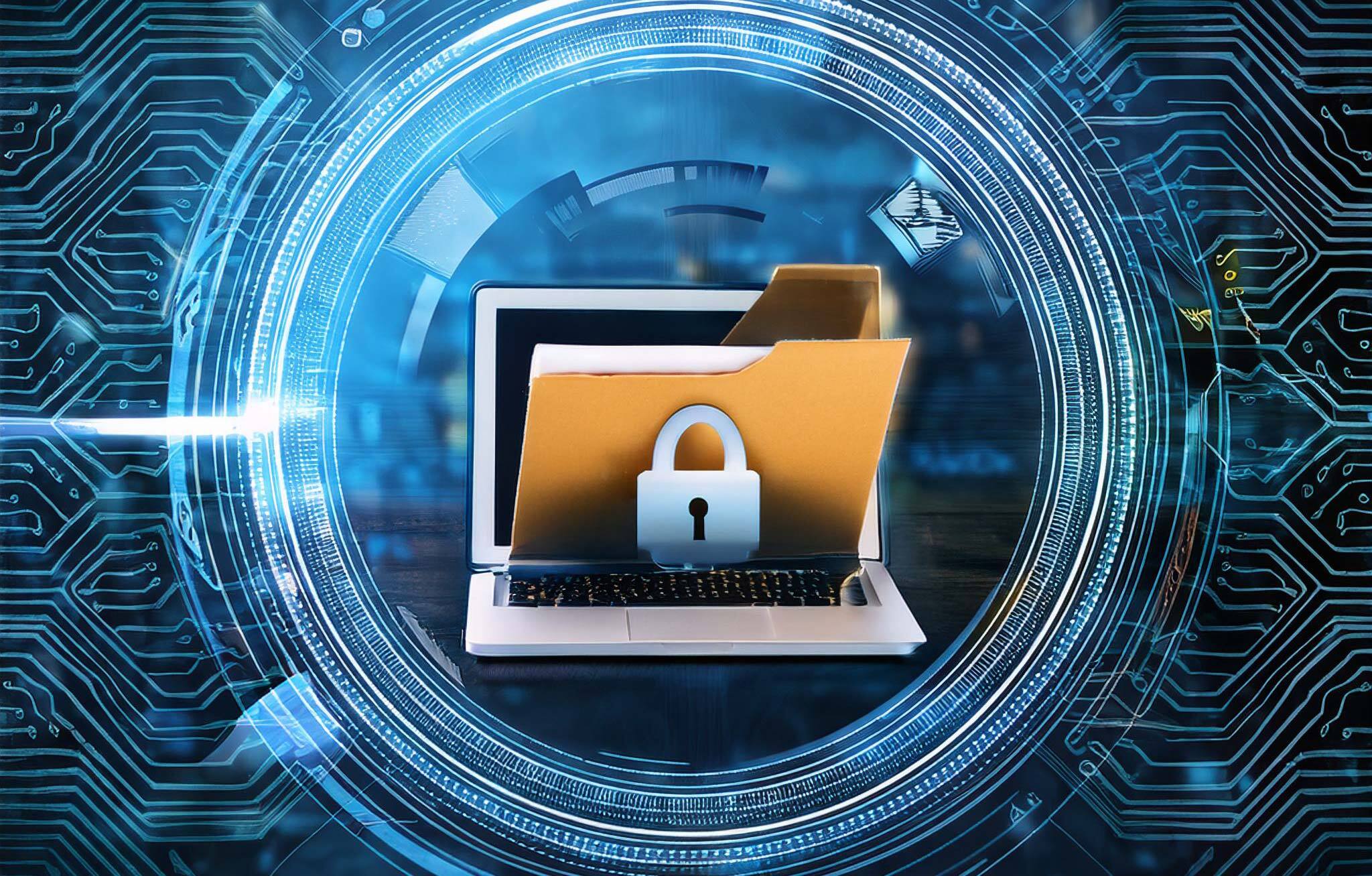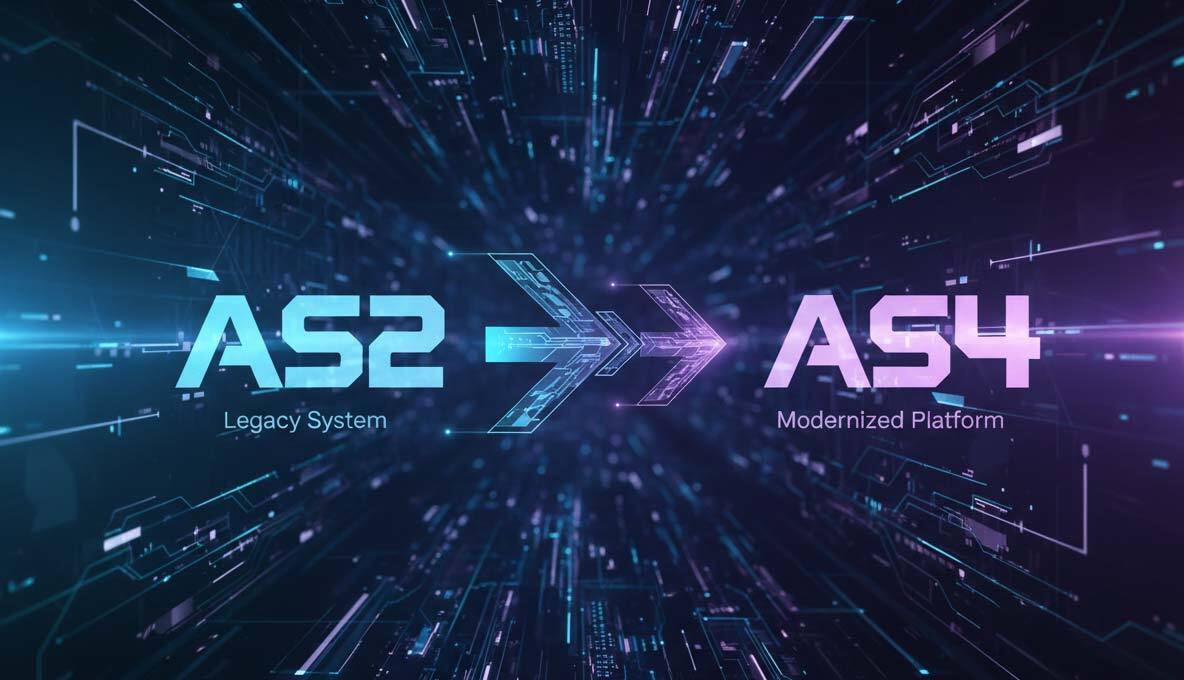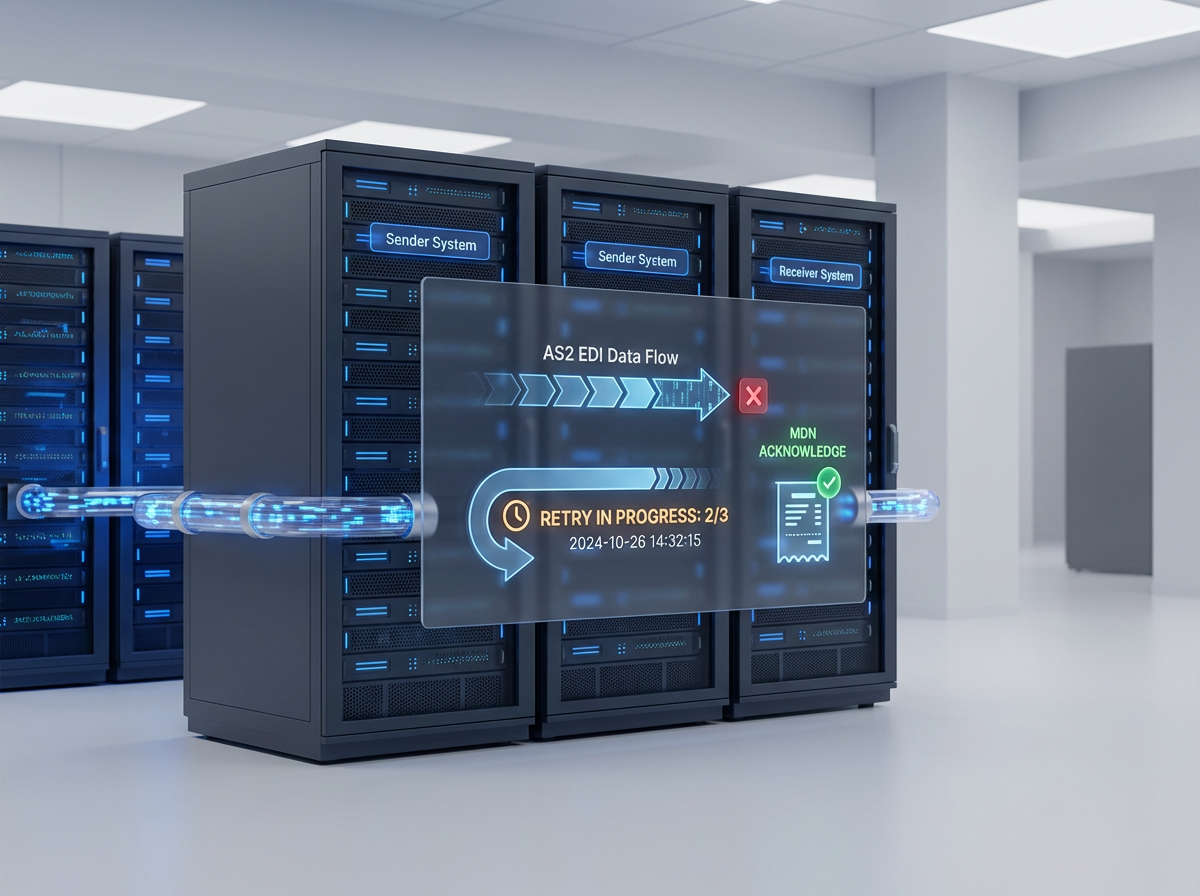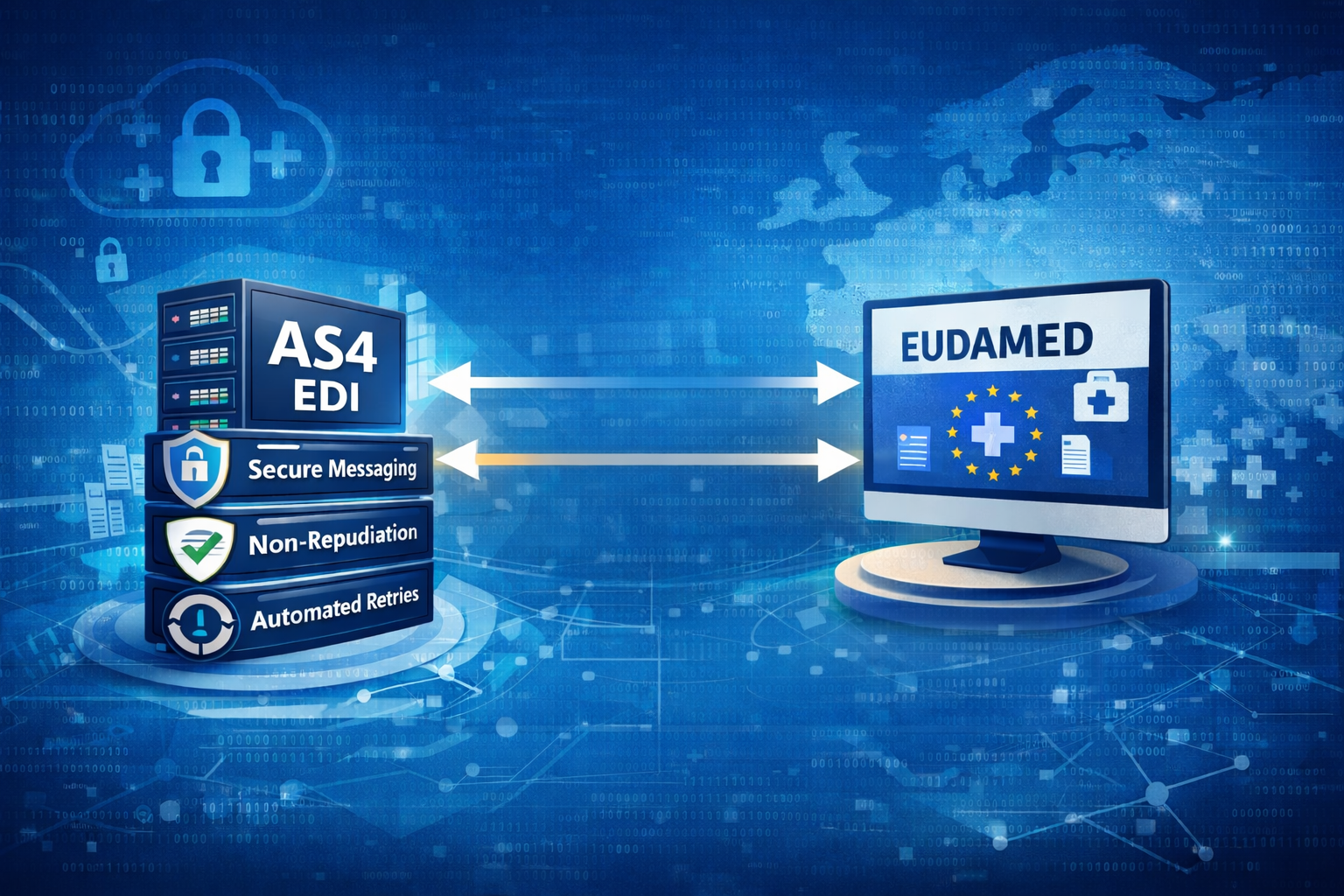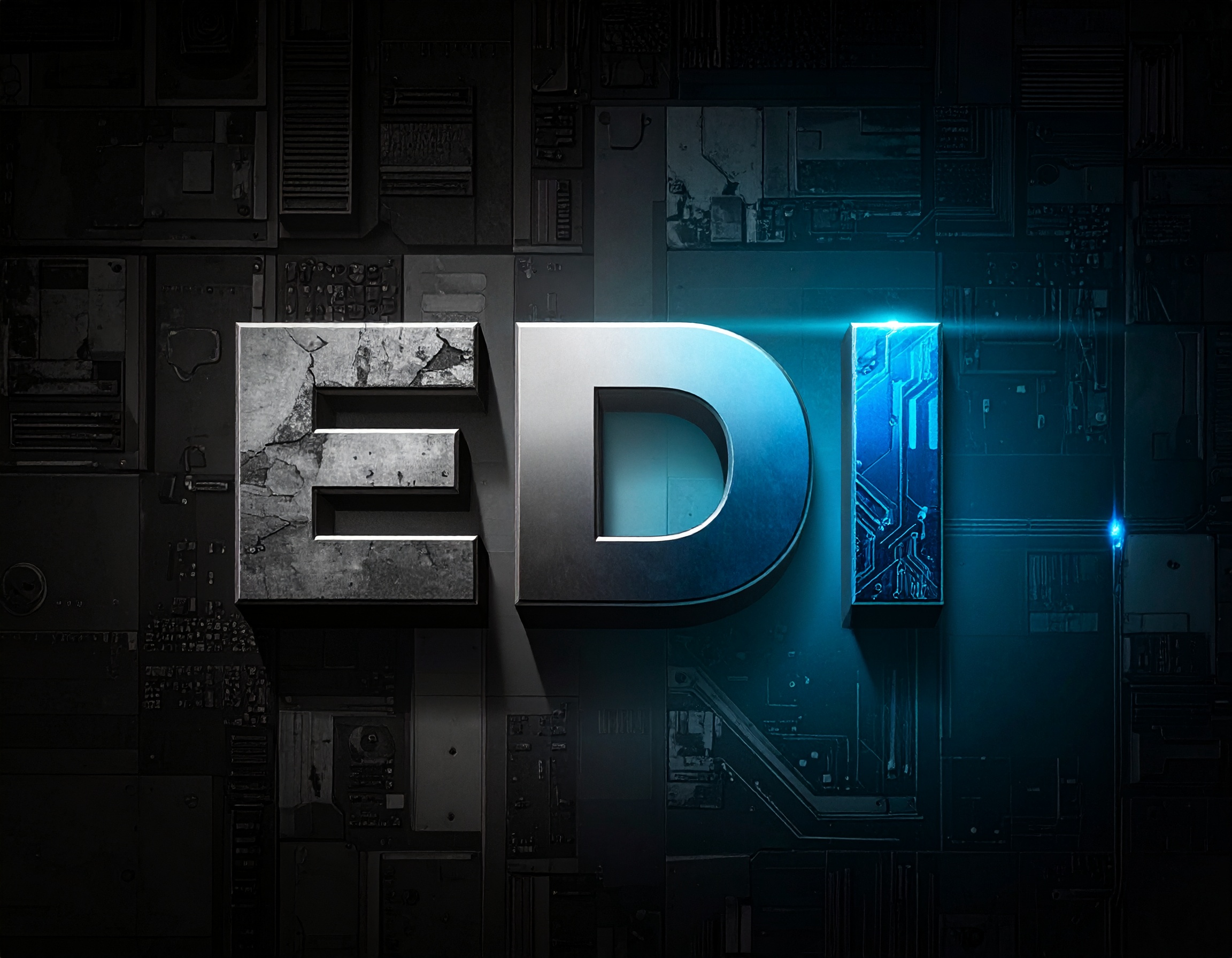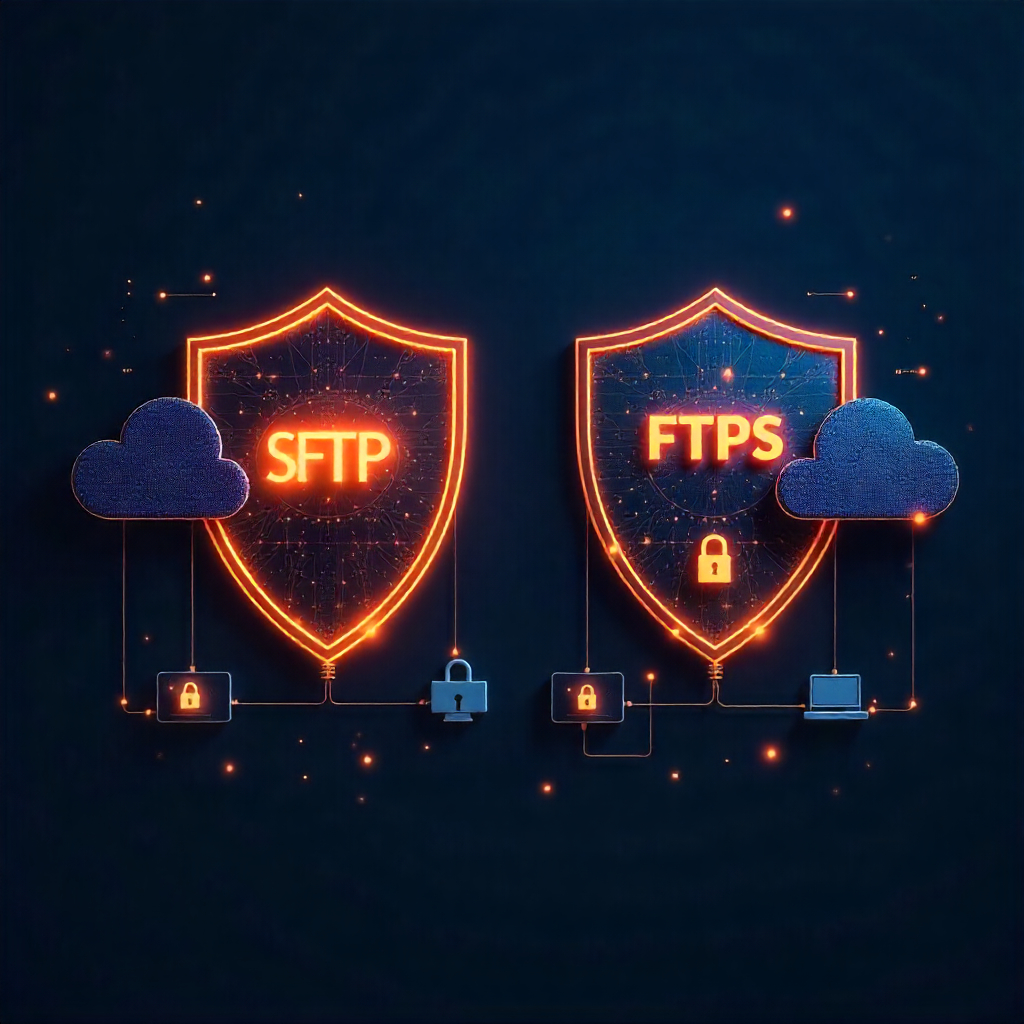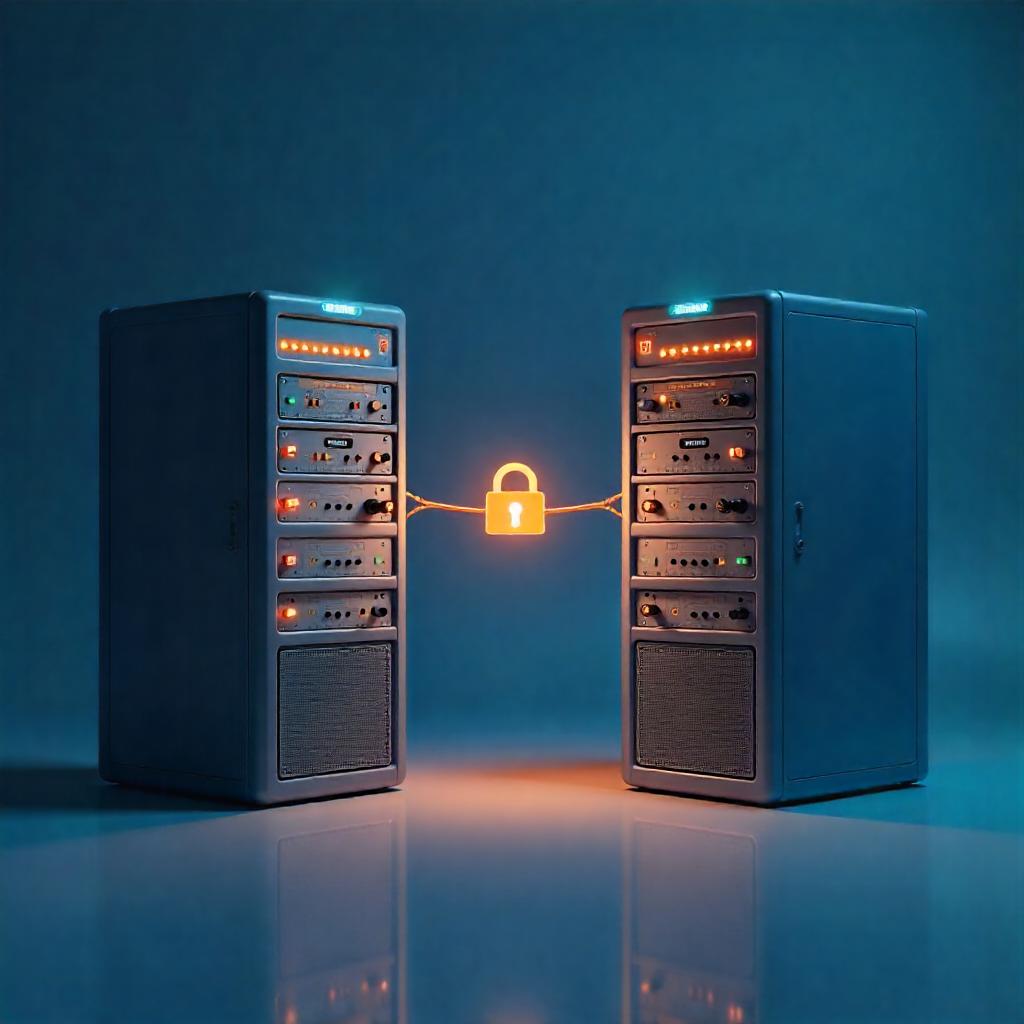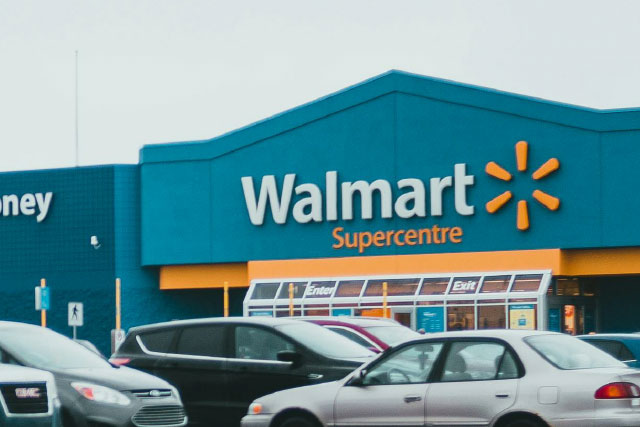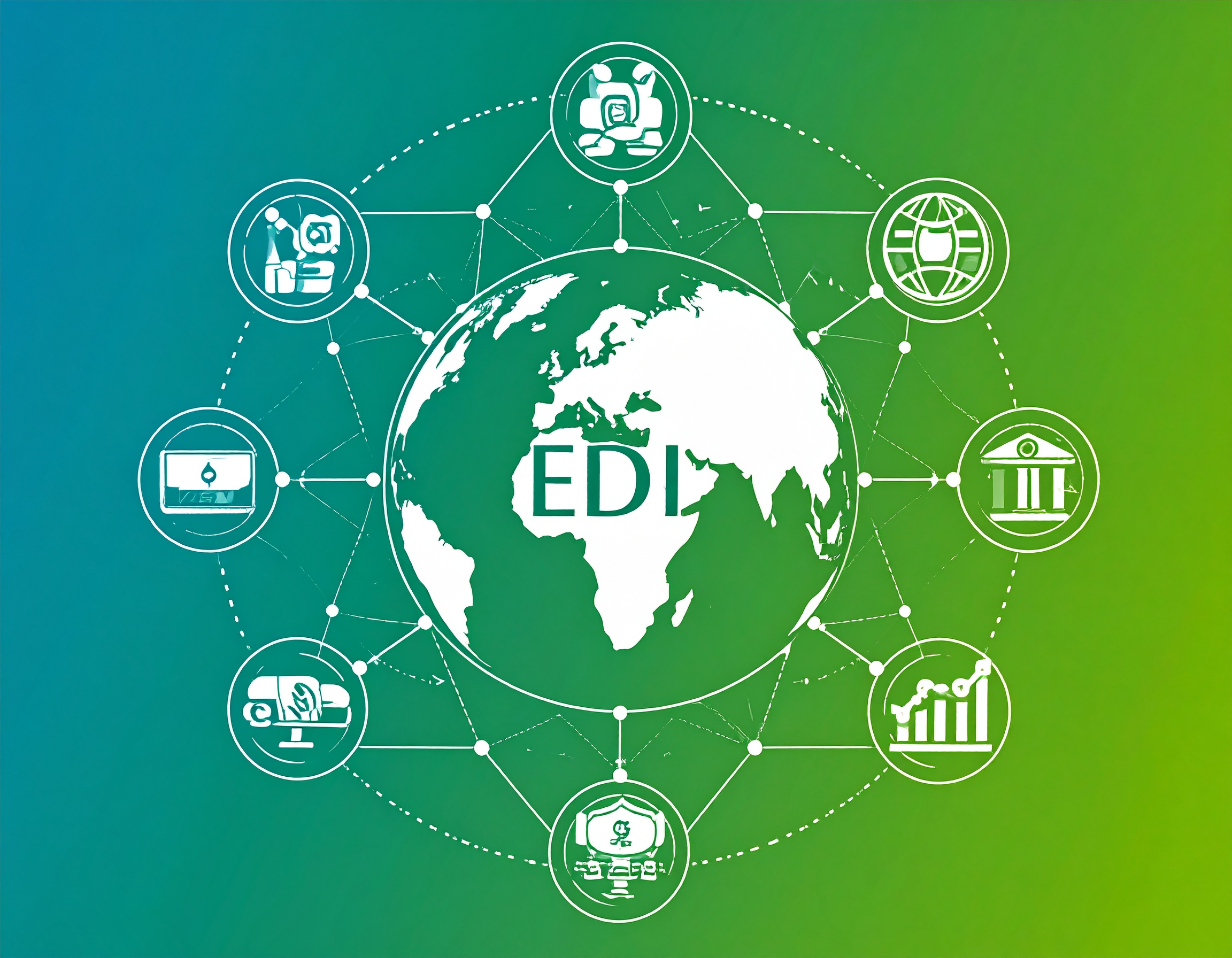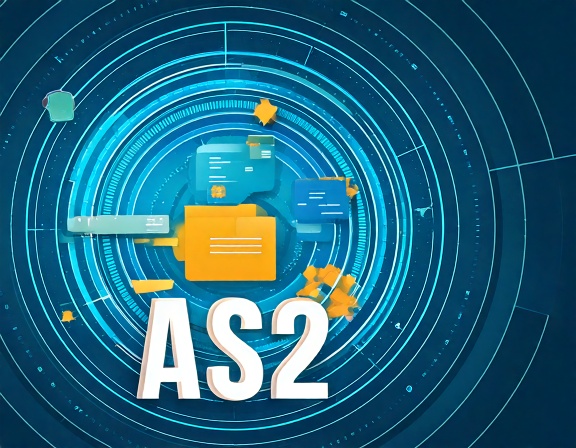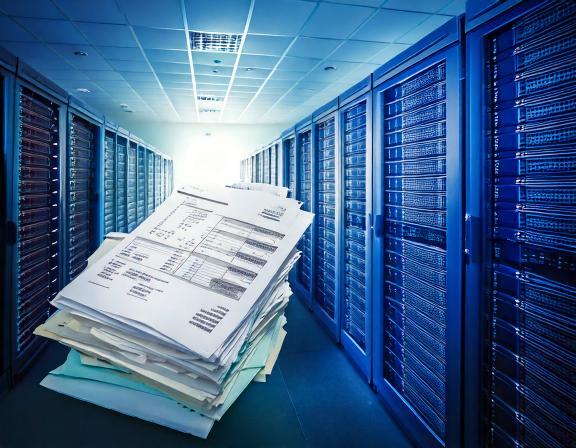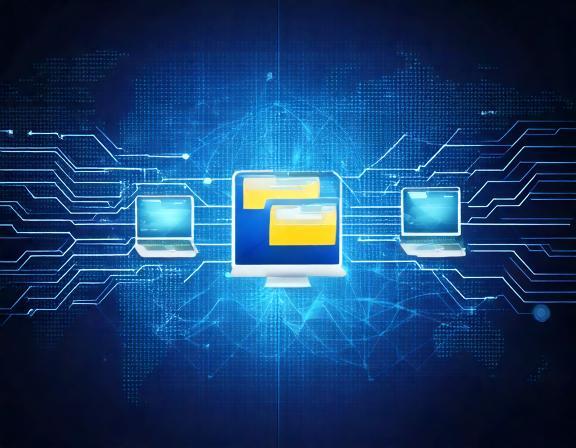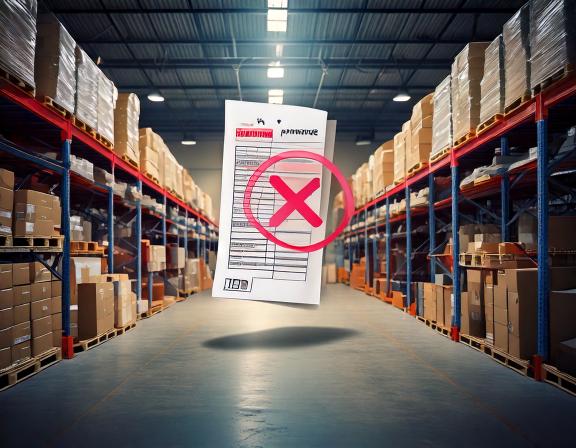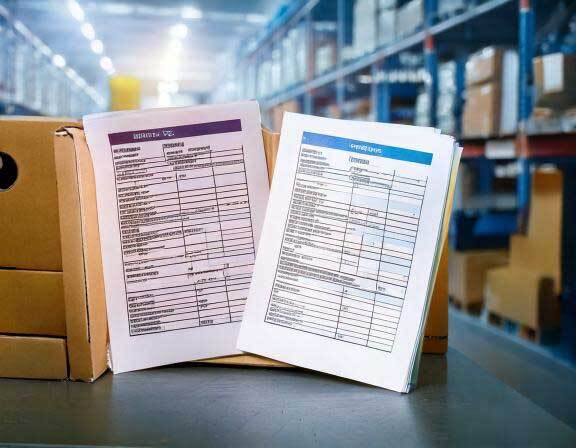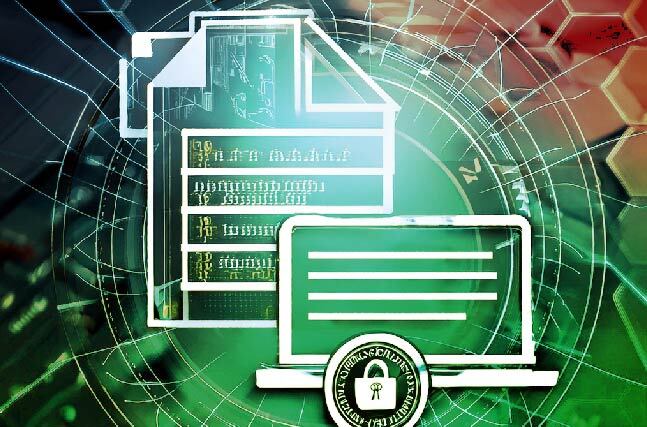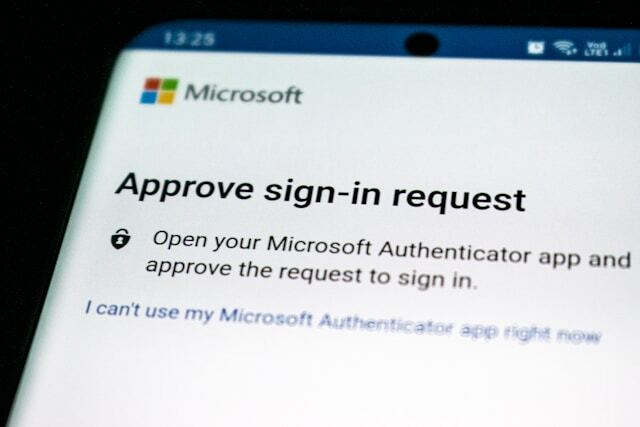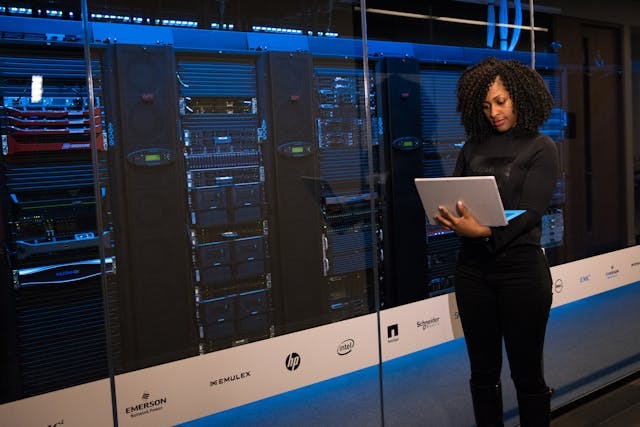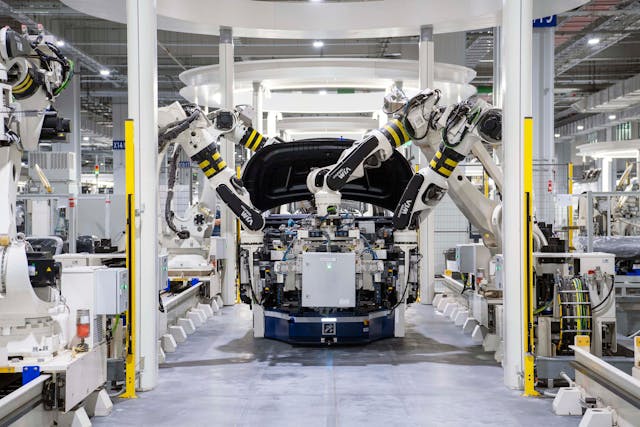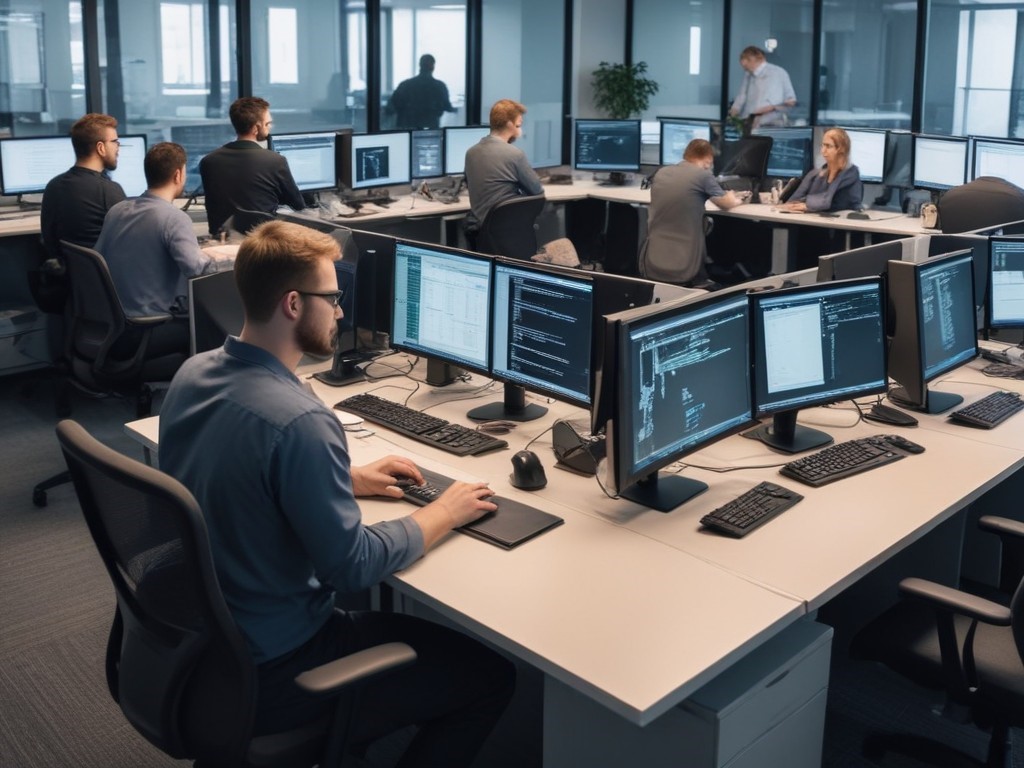MFT Gateway is a hosted Software as a Service (SaaS) solution that enables file exchange over the AS2 or SFTP protocol, without the need to install or maintain.
- Blog
- Managed File Transfer (MFT): A Key Enabler for NIS2 Directive Compliance
MFT
Managed File Transfer (MFT): A Key Enabler for NIS2 Directive Compliance
Learn how Managed File Transfer (MFT) supports NIS2 compliance by enhancing cybersecurity and streamlining processes.

Lahiru Ananda
Published: 11 Dec 2024

The NIS2 Directive signifies an important advance in the pursuit of greater cybersecurity across the European Union. The focus of the directive is evidently on risk management, incident response, and, quite importantly, supply chain security, establishing high entry-level standards for the protection of critical services and digital infrastructures.
It is in this context that the organization should consider Managed File Transfer (MFT) as vital in order to meet these requirements. MFT allows organizations to exchange data securely and reliably and provides compliance requirements to continue responding to key challenges posed by cyber threats.
This blog post will discuss how MFT solutions can be aligned to NIS2 Directive support organizations in fortifying security and also streamlining processes along with regulatory compliance.
Understanding the NIS2 Directive
The European Union’s adoption of the NIS2 Directive is ushering in a major update from the original NIS Directive (2016). Its goal is to develop better cybersecurity across member states by addressing emerging threats to essential and digital services. The directive extends its scope to cover more sectors of critical importance to societal and economic resilience, including healthcare, public administration, digital infrastructure, and important product manufacturing.
Organizations covered under NIS2 are obliged to adopt stronger cybersecurity measures that cover activities such as risk assessment, incident response, and supply chain risk management. There are also new harmonized obligations for the reporting of significant cybersecurity incidents, which require organizations to notify authorities within defined timelines.
One of the key features of NIS2 is building cooperation among EU states, including mechanisms for information sharing and coordinated responses to cross-border cyber incidents. The directive enforces strict rules, including financial penalties for noncompliance, to ensure that organizations take preventive measures.
The NIS2 directive thus intends to consolidate the security of Europe in an increasingly interconnected environment by addressing vulnerabilities in critical services and digital ecosystems.
What is Managed File Transfer (MFT)?
Managed File Transfer (MFT) is a reliable and safe solution for automating and managing data transfer between systems, organizations, or individuals. MFT provides better security features compared to traditional file transfer solutions; MFT offers enhanced security features such as end-to-end encryption, authentication, and audit logging to ensure the integrity and confidentiality of transferred data.
MFT Solutions provide the most effective solutions for today’s enterprise needs by centralizing the management of file transfers, allowing organizations to control and monitor every data movement. MFT solutions support several protocols, including AS2, SFTP, and HTTPS, and can also integrate with other enterprise systems for seamless workflows.
MFT helps organizations securely transfer sensitive data and guarantees that they remain operationally efficient by complying with national and international regulatory requirements such as NIS2, GDPR, etc.
How MFT Aligns with NIS2 Requirements
Risk Management and Secure File Transfer
MFT provides strong risk management through encryption technologies that protect data in transit and at rest and reduce interception or breaches. Authentication mechanisms such as multi-factor authentication (MFA) and role-based access controls enhance security to ensure that sensitive information is accessed only by authorized personnel. All these approaches cohere with the mandate of NIS2 for risk mitigation and secure data handling.
Incident Response and Monitoring
The fact that MFT solutions give real-time monitoring of data exchange processes ensures that organizations are able to detect any anomalies or unsolicited access immediately. Automated alerts for suspicious or failed transfers allow organizations to respond quickly to possible threats. Partly, MFT comes equipped with seamless integration with SIEM (Security Information and Event Management) tools, thus helping businesses construct a structured incident response plan, which forms one of the main requirements under NIS2.
Governance and Compliance
MFT systems generate detailed audit logs and maintain a comprehensive record of all file transfer activities. Audit trails make it easy to comply with NIS 2 since these provide the necessary transparency for reporting to regulatory authorities. Also, MFT is typically built with the features for compliance with other standards such as GDPR, thus encouraging the adoption of a more unified governance across multiple frameworks.
Supply Chain Security
While specific to the secure supply chains highlighted in the NIS2 Directive, managed file transfer (MFT) will guarantee encrypted data exchange with vendors, partners, and customers. This also entails the management of third-party risks through secure endpoints and protocols for the integrity and confidentiality of shared data.
MFT Features That Support NIS2 Objectives
MFT solutions embed the best modern features to improve their adherence to the much-needed NIS2 objectives through better cybersecurity and compliance. There are automatic file transfer workflows that require less effort from a user, thus reducing errors while automating operations in a security-compliant manner. Advanced encryption algorithms, in addition to safe transport protocols such as SFTP and HTTPS, prevent interception and unauthorized access to data, which is one of the main requirements of NIS2.
Its scalability allows MFT to increase with growing regulatory needs and organizational complexity. Built-in redundancy and fail-over ensure continuity in service, even during disruptions. Enhanced visibility into data movements with dashboards and reporting tools supports accountability; flexible integrations with third-party systems further secure supply chains and critical services.
In addition, MFT delivers centralized governance, thereby enabling organizations to standardize file transfer policies across diverse teams and locations. This has made it easier for organizations to ensure compliance with NIS2 requirements and for the auditing processes to be simplified.
Features such as customized access control and role segregation add more to the governance by ensuring only designated users have access to certain data. With fine audit trails and automated tools for reporting, MFT supports the monitoring of incidents and is quite aligned with what NIS 2 concerns incident reporting and management.
Choosing the Right MFT Solution
MFT as Solution: It is Time for NIS2 Compliance. Organizations should therefore adopt solutions that deliver strong encryption, centralized management, and real-time monitoring to facilitate all secure and clear data exchanges. Scalability and integration capabilities are critical for transforming with evolving business and regulatory needs. Look for the options of customizable workflows, detailed audit logs, and automated compliance reporting. Strong customer support becomes the leverage factor so that implementation can be smooth and constant adaptation with the customer’s ever-changing cybersecurity hurdles can be met.
MFT Gateway
The MFT Gateway, business to business (B2B) file transfer software as a service (SaaS), supports exchanging files over both AS2 and SFTP protocols. As a SaaS solution, the MFT Gateway will provide you with an email-like web interface for AS2 and SFTP, reducing the complexity of maintaining your own servers.

Talk to an EDI Expert
Join hundreds of organizations already taking full control of their B2B AS2 communications with our trusted solutions. Contact us today to tailor a solution that fits your specific AS2 EDI needs.
Related Articles
View All BlogsExplore our product stack
Try before you buy with a 30-day Free Trial
No commitment, all value. Try the AS2 Solution Risk-Free and discover how our solutions can transform your business workflows. No credit card required.
Explore Your Possibilities
Elevate AS2 Communications with our EDI and AS2 Solutions
See how our AS2 and EDI solutions can simplify your integrations, boost efficiency, and keep you compliant—request a personalized demo today.

